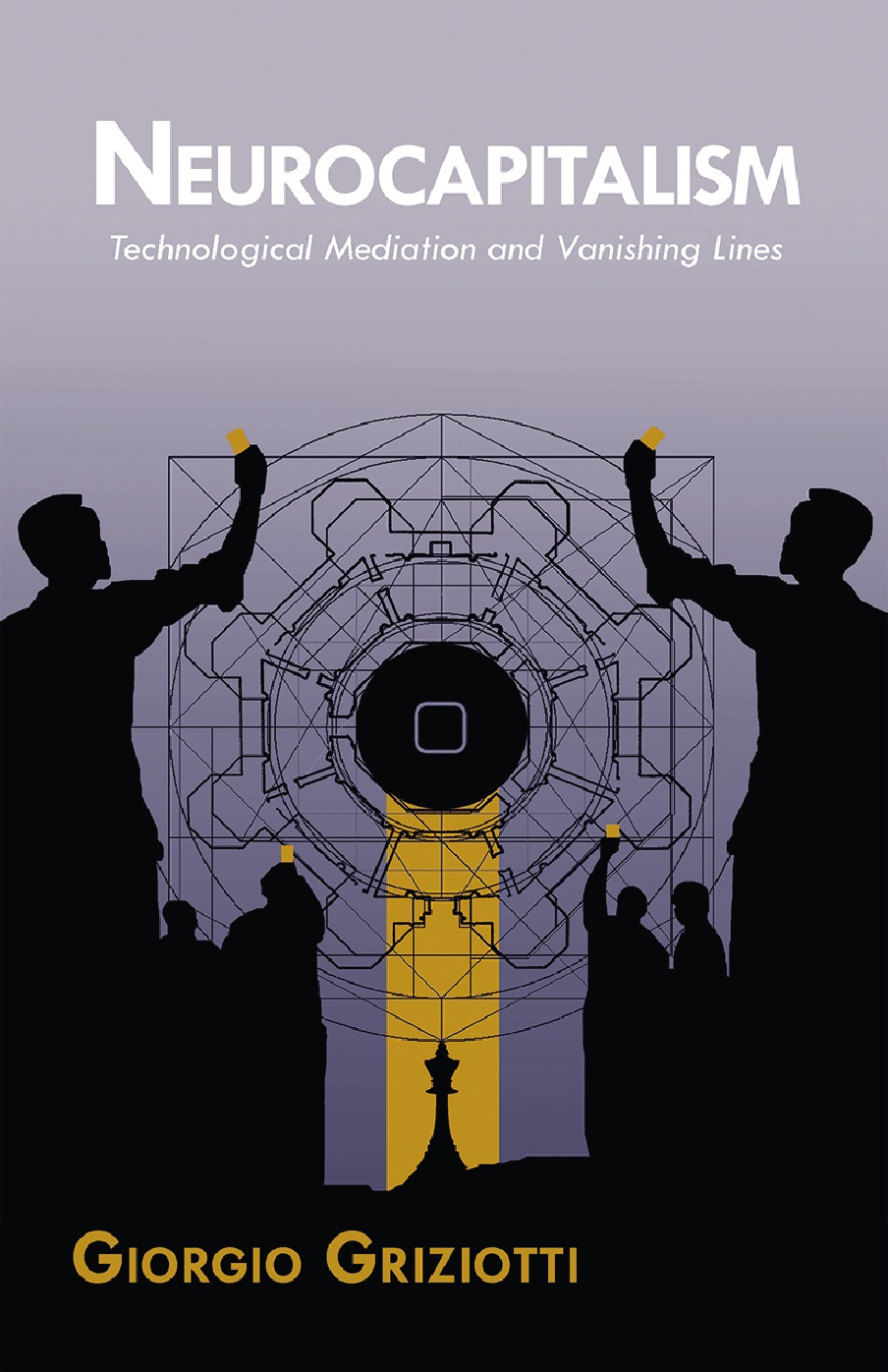Giorgio Griziotti: Neurocapitalism: Technological Mediation and Vanishing Lines (2016–)
Filed under book | Tags: · automation, capitalism, commons, decentralization, labour, neurocapitalism, politics, production, technology, theory

“Analyzes the changing politics of technology, charting out possibilities for autonomous cooperation
Technological change is ridden with conflicts, bifurcations and unexpected developments. Neurocapitalism takes us on an extraordinarily original journey through the effects that cutting-edge technology has on cultural, anthropological, socio-economic and political dynamics. Today, neurocapitalism shapes the technological production of the commons, transforming them into tools for commercialization, automatic control, and crisis management.
But all is not lost: in highlighting the growing role of General Intellect’s autonomous and cooperative production through the development of the commons and alternative and antagonistic uses of new technologies, Giorgio Griziotti proposes new ideas for the organization of the multitudes of the new millennium.”
First published as Neurocapitalismo: Mediazioni tecnologiche e linee di fuga, Mimesis, 2016.
Foreword by Tiziana Terranova
Translated by Jason Francis McGimsey
Publisher Minor Compositions, Colchester, February 2019
Open access
ISBN 1570273421, 9781570273421
244 pages
PDF, PDF
Reviews and extracts in Italian, Spanish and French
Ori Brafman, Rod A. Beckstrom: The Starfish and the Spider: The Unstoppable Power of Leaderless Organizations (2006)
Filed under book | Tags: · apache, business, craigslist, decentralization, ebay, ideology, management, napster, organization, paypal, skype, wikipedia

Understanding the amazing force that links some of today’s most successful companies
If you cut off a spider’s leg, it’s crippled; if you cut off its head, it dies. But if you cut off a starfish’s leg it grows a new one, and the old leg can grow into an entirely new starfish.
What’s the hidden power behind the success of Wikipedia, craigslist, and Skype? What do eBay and General Electric have in common with the abolitionist and women’s rights movements? What fundamental choice put General Motors and Toyota on vastly different paths? How could winning a Supreme Court case be the biggest mistake MGM could have made?
After five years of ground-breaking research, Ori Brafman and Rod Beckstrom share some unexpected answers, gripping stories, and a tapestry of unlikely connections. The Starfish and the Spider argues that organizations fall into two categories: traditional “spiders,” which have a rigid hierarchy and top-down leadership, and revolutionary “starfish,” which rely on the power of peer relationships.
The Starfish and the Spider explores what happens when starfish take on spiders (such as the music industry vs. Napster, Kazaa, and the P2P services that followed). It reveals how established companies and institutions, from IBM to Intuit to the US government, are also learning how to incorporate starfish principles to achieve success. The book explores:
* How the Apaches fended off the powerful Spanish army for 200 years
* The power of a simple circle
* The importance of catalysts who have an uncanny ability to bring people together
* How the Internet has become a breeding ground for leaderless organizations
* How Alcoholics Anonymous has reached untold millions with only a shared ideology and without a leader
The Starfish and the Spider is the rare book that will change how you understand the world around you.
Publisher Penguin, 2006
ISBN 1591841437, 9781591841432
230 pages
authors
wikipedia
publisher
google books
Book-ish Territory: A Manual of Alternative Library Tactics (2011)
Filed under book | Tags: · city, decentralization, diy, everyday, knowledge, knowledge production, library, urbanism

“This project aims to challenge the model of the institutionalized library, calling for a new decentralized system. The fundamental characteristics of a library and a city are the same: they both serve as spaces of exchange and encounter. Dispersing library content throughout the city would be of mutual benefit to the library and city: opportunities for informational exchange and casual encounter would dramatically increase.” (from introduction)
Published in May 2011
208 pages
via publicpraxis.com
PDF (single PDF, 24 MB, no OCR, low quality, updated on 2014-12-22)
View online (Issuu.com)

